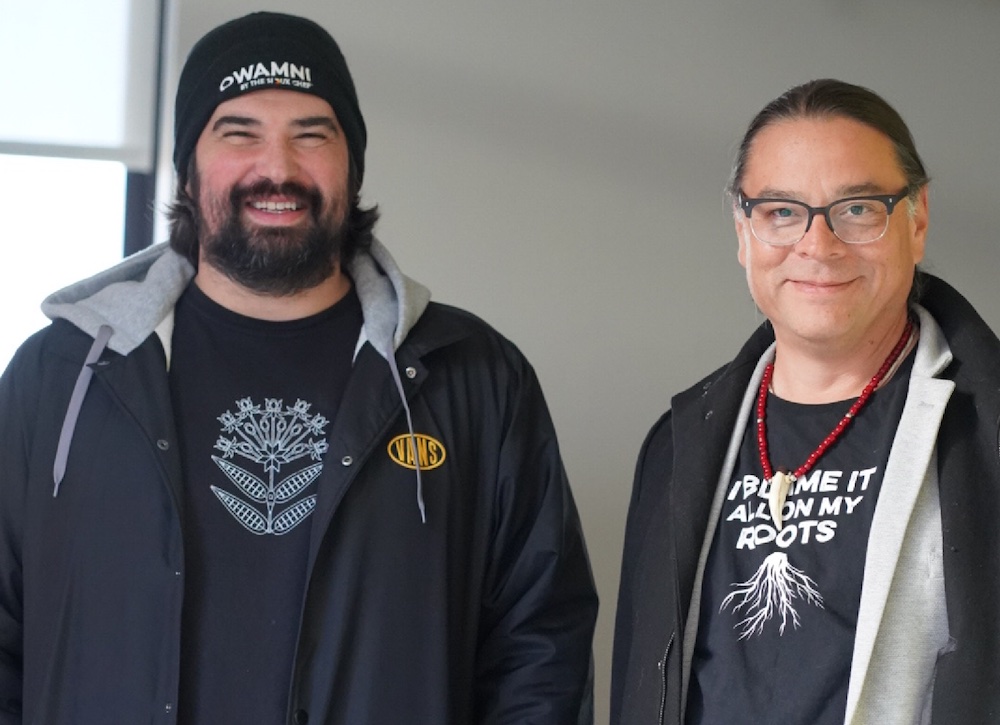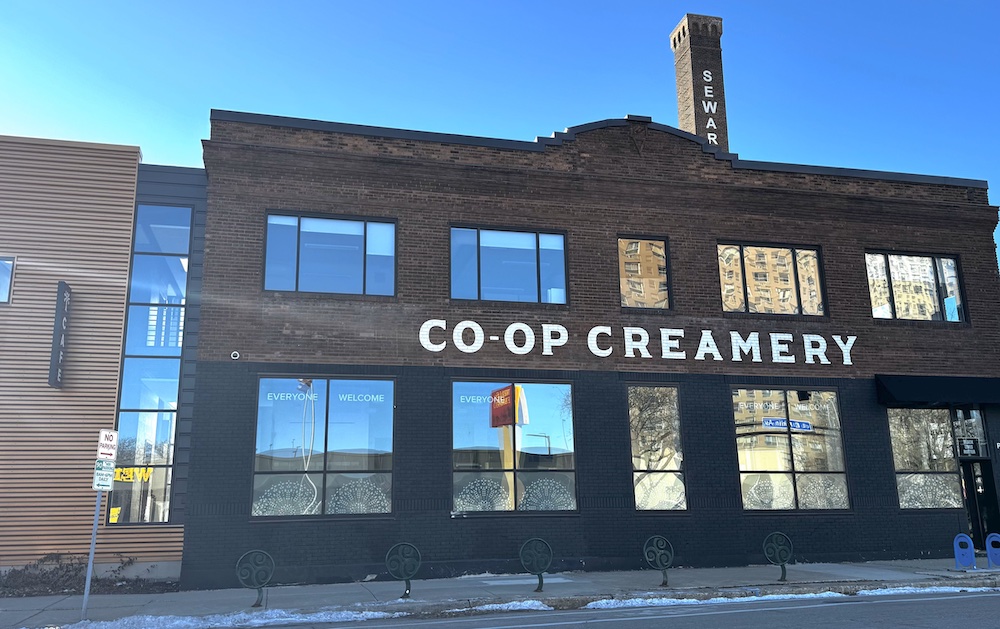
- Details
- By Chez Oxendine, Tribal Business News
The nonprofit North American Traditional Indigenous Food Systems (NATIFS) will have a home to call its own following a building acquisition in Minneapolis.
The organization, founded by James Beard award-winning chef Sean Sherman, purchased the Seward Co-op Creamery building and plans to convert the space into NATIFS Wóyute Thipi, or “food building” in Dakota. Sherman founded NATIFS in 2017 to address economic and health crises affecting Native communities by re-establishing Native foodways and creating a new food system that generates wealth and improves health through food-related enterprises.
The new building will serve as a hub for several new NATIFS programs, as well as the organization’s headquarters. Sherman, NATIFS executive director and a major figure in Indigenous food, called Wóyute Thipi the organization’s “heart” going forward.
“This will be the first space we own, and it will truly be the heart of everything we do,” Sherman said in a statement.
 The Seward Co-op Creamery building in Minneapolis will become the new home of nonprofit food organization North American Traditional Indigenous Food Systems, or NATIFS. (Photo provided by NATIFS.)
The Seward Co-op Creamery building in Minneapolis will become the new home of nonprofit food organization North American Traditional Indigenous Food Systems, or NATIFS. (Photo provided by NATIFS.)
Wóyute Thipi’s programs will include a large-scale commissary kitchen, a coworking space for Indigenous and other marginalized groups, and a counter-service restaurant: ŠHOTÁ Indigenous BBQ by Owamni.
According to Sherman, ŠHOTÁ will be “the first Indigenous barbecue restaurant,” using Native-made ingredients and foods for the menu. Planned entrees include house-made hominy, braised greens, corn mush, smoked salmon with huckleberries, alligator gumbo, three sisters bison stew and walleye stew.
“‘Šhotá’ can translate as ‘smoke’ or ‘clouds’ in the Dakota language. In fact, it’s the same word used in ‘Minnesota,’ which means ‘clouds that live in the water,’” Sherman said. “We’ll prioritize sourcing from Indigenous producers and eliminate colonial ingredients like wheat flour, cane sugar, and dairy from the menu.”
The commissary kitchen will help launch a large-scale food distribution program under NATIFS’ care, delivering traditional foods to public schools, hospitals, universities, and other institutions in the area. Sherman pointed to health issues in Indigenous communities such as type 2 diabetes, heart disease, and cancer, as reasons for launching the program.
“We are committed to addressing the health disparities that have long affected Indigenous communities by providing access to traditional, nutrient-dense foods,” Sherman said. “Our goal is to provide a sustainable solution and improve overall health and well-being in these communities.”
This story was reported in collaboration with Tribal Business News.
Can we take a minute to talk about tribal sovereignty?
Sovereignty isn't just a concept – it's the foundation of Native nations' right to govern, protect our lands, and preserve our cultures. Every story we publish strengthens tribal sovereignty.
Unlike mainstream media, we center Indigenous voices and report directly from Native communities. When we cover land rights, water protection, or tribal governance, we're not just sharing news – we're documenting our living history and defending our future.
Our journalism is powered by readers, not shareholders. If you believe in the importance of Native-led media in protecting tribal sovereignty, consider supporting our work today.
Right now, your support goes twice as far. Thanks to a generous $35,000 matching fund, every dollar you give during December 2024 will be doubled to protect sovereignty and amplify Native voices.
No paywalls. No corporate owners. Just independent, Indigenous journalism.
